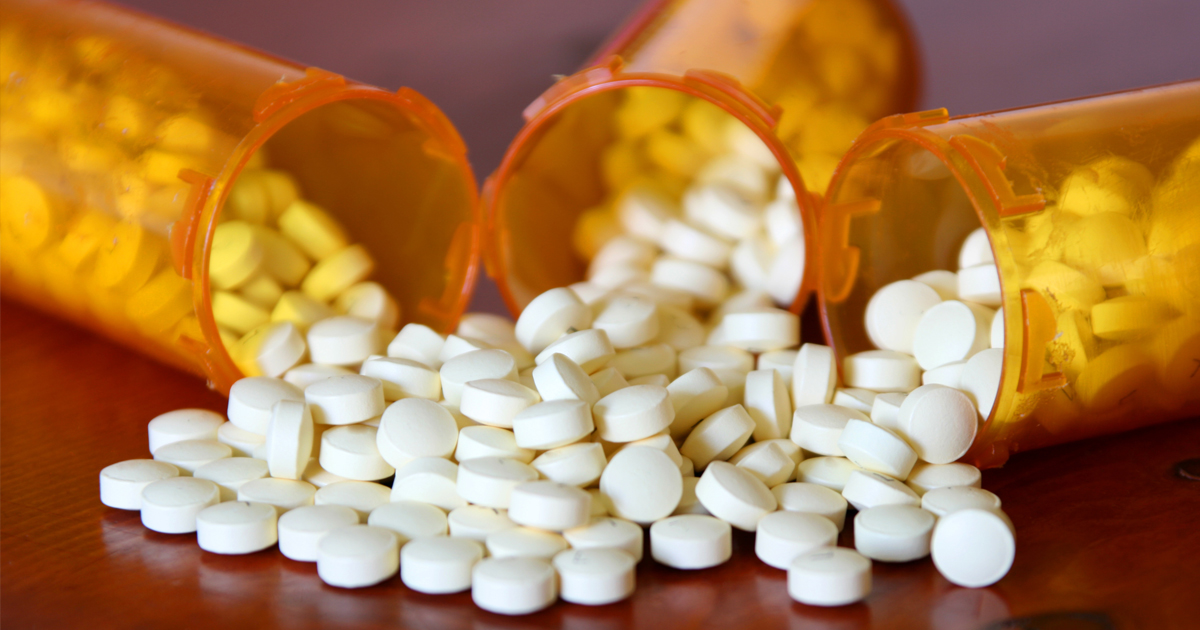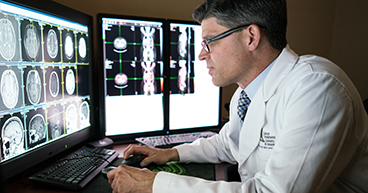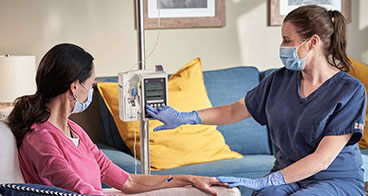
The last 20 years has seen a wave of game-changing cancer drugs that have produced remarkable outcomes for thousands of patients. Immune checkpoint inhibitor drugs have dramatically changed outlook for difficult-to-treat cancers, such as melanoma and lung cancer. And CD4/6 inhibitors have allowed millions of women with breast cancer to live years longer and delay chemotherapy and its side effects.
Twenty years is also when most drug patents expire and competitors are able to start producing generic or biosimilar versions that are often less expensive. In the coming years, the patents for several high-profile cancer drugs will be expiring. They include the immune checkpoint inhibitors pembrolizumab (Keytruda®) and nivolumab (Yervoy®) and the breast cancer drug palbociclib (Ibrance®), a CD 4/6 inhibitor.
The U.S. Food and Drug Administration (FDA) requires that generic and biosimilar drugs be as safe and effective as the original, branded versions. However, the COVID-19 pandemic and other factors have created economic issues that have raised questions about the quality of some generic drugs made overseas. And manufacturers of some generics have shut down or shifted to making more profitable brand-name drugs, resulting in shortages of some drugs, including the common chemotherapy drug cisplatin.
In this article we’ll explore:
- Biosimilar versus generic drugs
- What are generic drugs?
- What are biosimilar drugs?
- Why do drug patents expire?
- Are biosimilars and generics safe for cancer patients?
If you’ve been diagnosed with cancer and are interested in getting a second opinion about your diagnosis or treatment options, call us or chat online with a member of our team.
Biosimilar versus generic drugs
Biosimilar drugs are often confused with generic drugs. Both are:
- Available when drug companies’ exclusive patents on expensive new drugs expire
- Marketed as cheaper versions of costly brand-name drugs
- Designed to have the same clinical effects as their pricier counterparts
But biosimilar drugs and generic drugs are very different.
Brand-name drugs are either synthetic, made from a chemical process, or biological, made from living sources. Synthetic branded drugs may be exactly replicated into more affordable generic versions, but because biologics involve large, complex molecules, they cannot. That's where biosimilars come into play.
What are generic drugs?
Generic drugs are identical in chemical composition to branded drugs. They cost significantly less because they don’t require research to develop or much testing to determine safety, efficacy or dosage levels.
In general, generic drugs may cost 40 percent to 50 percent less than the original brands.
Generic drugs used to treat cancer include the common chemotherapy drugs cisplatin, carboplatin and methotrexate.
What are biosimilar drugs?
Biosimilar drugs are “highly similar,” but close enough in duplication to accomplish the same therapeutic and clinical result as branded drugs.
Because biosimilars are made from living organisms, though, and don’t contain identical ingredients to their name-brand counterparts, they still require some research and testing. So, they cost more than generics, but less than branded drugs. Biosimilars are closer to 15 percent to 20 percent cheaper because of the amount the drug manufacturer has to spend on testing.
For a biosimilar drug to receive FDA approval, it must be highly similar to the original biological drug and contain no clinically meaningful differences, although there may be minor differences in clinically inactive ingredients. According to the National Cancer Institute, the biosimilar drug also must prove to be “as safe as, work as well as, and work in the same way as” the original drug, and “be used in the same way, at the same dose, and for the same condition.”
Biosimilar drugs approved to treat cancer include:
- Filgrastim-sndz (Zarxio®), used to boost white-blood cell count and prevent infection during chemotherapy
- Bevacizumab-awwb (Mvasi®), modeled after bevacizumab (Avastin®), treats several cancers, including lung cancer, kidney cancer and cervical cancer
- Trastuzumab-dkst (Ogivri®), a biosimilar developed from trastuzumab (Herceptin®), prescribed for patients with breast cancer and other HER2-positive cancers
Why do drug patents expire?
When drug manufacturers receive FDA approval for a new drug, they obtain a patent ensuring that no other company can create or sell the drug for as long as the patent is in effect, generally 20 years. These exclusive patents allow for a monopoly on the drug and often an expensive price tag.
The Hatch-Waxman Act, passed in 1984, reduced the cost of synthetic branded drugs by allowing other companies to create generics, or identical but less expensive versions of the original, branded drugs, once the patents expire.
In 1984, generic drugs accounted for 19 percent of retail prescriptions. In 2022, they accounted for 91 percent, according to the FDA.
Many of newer-to-market drugs are biological drugs, or biologics, which are branded drugs made from living organisms like yeast, bacteria, animal or plant cells. In 2005, biologics made up 39.1 percent of the $9.5 billion in Medicare drug spending. By 2014, they accounted for 62 percent of the $18.5 billion spent by Medicare on prescription drugs.
“Cost is a major consideration and in general is the specific reason a generic drug will be selected for use rather than the brand name product,” says Maurie Markman, MD, President of Medicine & Science of City of Hope® Cancer Centers Atlanta, Chicago and Phoenix.
At the same time generic drugs have helped offset the high cost of brand-name medications. Some newer drugs, such as the immunotherapy and targeted therapy drugs now commonly used to treat cancer, have driven up prescription prices even more.
A report entitled Global Oncology Trends from the IQVIA™ Institute from Human Data Science found that spending on cancer medications in the United States doubled from 2012 to 2017. Americans spent more than $200 billion on cancer care in 2020.
Now that the patents on high-priced biologics are beginning to expire, many experts hope that biosimilars, which are comparable but not chemically identical to their name-brand counterparts, may work the same way generics did to help offset drug prices.
Are biosimilars and generics safe for cancer patients?
Patients should ask questions about whether generic and biosimilar cancer drugs available for their treatment and whether they a good option for them. Some questions may include:
- What’s the difference between generic and biosimilar drugs?
- Are these drugs less effective?
- Do their side effects differ?
- If the optimal drug for my cancer is not available, what are the options?
“Generic drugs are equally effective to the brand drugs,” Dr. Markman says. “And FDA approval ensures the generic drug has satisfied the requirement for ingredients that have been demonstrated to be both safe and effective for the specific indications.”
If you’ve been diagnosed with cancer and are interested in getting a second opinion about your diagnosis or treatment options, call us or chat online with a member of our team.


